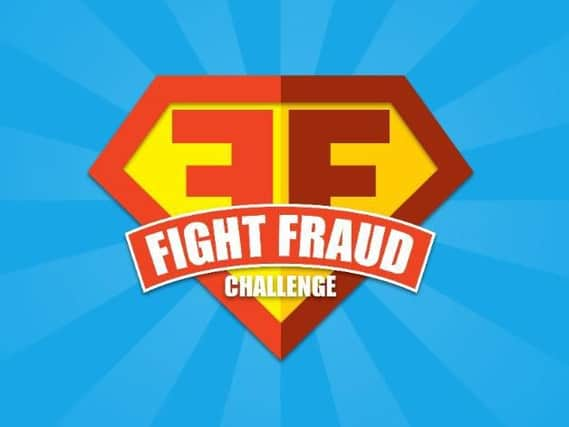Calling all superheroes - Lincolnshire Police launch Tag4 promotional campaign to fight fraud


The force wants to raise awareness of fraud and scams.
Did you know that every member of society is now more likely to become the victim of this than any other crime? To date, there is in excess of an estimated 5,000 victims of fraud that the police are aware of in the county and they are asking for people to help talk about this within their own families and communities.
They want to encourage young people, teenagers and young adults to talk with their families and raise everybody’s awareness to help protect and prevent them from being the victim of a scam. The financial impact on victims varies greatly, but the average loss reported by victims in Lincolnshire is around £500.
Advertisement
Hide AdAdvertisement
Hide AdThe new campaign – Tag4 to Fight Fraud – encourages everyone reading this and the police's social media messages to tag four people and challenge them to tag four more through their own profiles and share the same messages. If everyone does that they can make sure the message is spread far and wide. And what they really need is for you to talk to people – grandparents, aunts, neighbours – anyone you think could be a victim of this crime. You can be their 'superhero' and stop criminals from getting to them.
What you need to do -
* Unless you are certain the person or people contacting you can be completely trusted, or you are expecting the contact, never reply, never send personal details, and never send money.
* Fraudsters will use email, telephone, the postal service, and may even turn up on a potential victim’s doorstep.
* They may know personal details about an individual but that does not make them genuine – if you are unsure do not engage with them and check what they are telling you.
Think ABC!
- Accept nothing as being true
- Believe nothing you are told is true
- Check everything
Advertisement
Hide AdAdvertisement
Hide AdDetective Inspector Jim Hodgson said: “We are constantly engaging with our communities through various channels, locally, regionally and nationally. The police and our partners are determined to protect and stop people becoming the victims of crime. Scams will normally occur via email, telephone calls, letters or people cold calling and we just want to reinforce some really simple messages.
“If you have a family member, neighbour, or friend, please talk to them and explain how these different types of fraud work to stop it from happening to them. Not only would you be their superhero but you would be ours too.”
“There are different methods being used by criminals to target victims, all of which centre around them trying to obtain personal details, such as bank details or sensitive information, to obtain money. If you are contacted by someone who is trying to get you to send them cash by whatever means, please simply don’t engage with them and report the incident to police or Action Fraud.”
There is a simple checklist to follow to establish if you can trust the person you are talking to. The below will help you decide if you can trust the person:
- Ask the person for their name and organisation.
Advertisement
Hide AdAdvertisement
Hide Ad- Do not use any contact details they provide - find a Freephone or central telephone number for the organisation and call it, asking to speak to the person that called.
- If that person does not exist at that organisation or they have no record of you being contacted by one of their members then don’t engage with them.
- Report the issue to us as soon as possible.
- If you receive a call and are unsure, hang up the phone immediately and call 101 on a different line.
- If in doubt be assured that NO PROFESSIONAL organisation, whether the police, HMRC, Tax Office, council, bank, building society or large financial company will cold call people and ask for personal ID.
Advertisement
Hide AdAdvertisement
Hide AdDI Hodgson added: “These criminals have no care or compassion and they will target anyone, regardless of age. But we often find it is the most vulnerable people in our communities that do not even realise they are being scammed. The impact on victims is emotional as well as financial. The criminals are cruel and callous and we want to do everything we can to prevent and protect people from these scams and fraudsters.
“You can help us raise the awareness within your family and friends, talk about the different methods of scams, help people delete or block emails, block cold callers on phones and ignore any contact if not expected. No professional organisation or company should be asking for personal information or money, do not engage and if concerned check they are genuine or report it to the police or Action Fraud.”
Visit https://www.friendsagainstscams.org.uk/ for more information or visit the force's own fraud pages here.
Follow #tag4 and #ScamAware on Twitter.